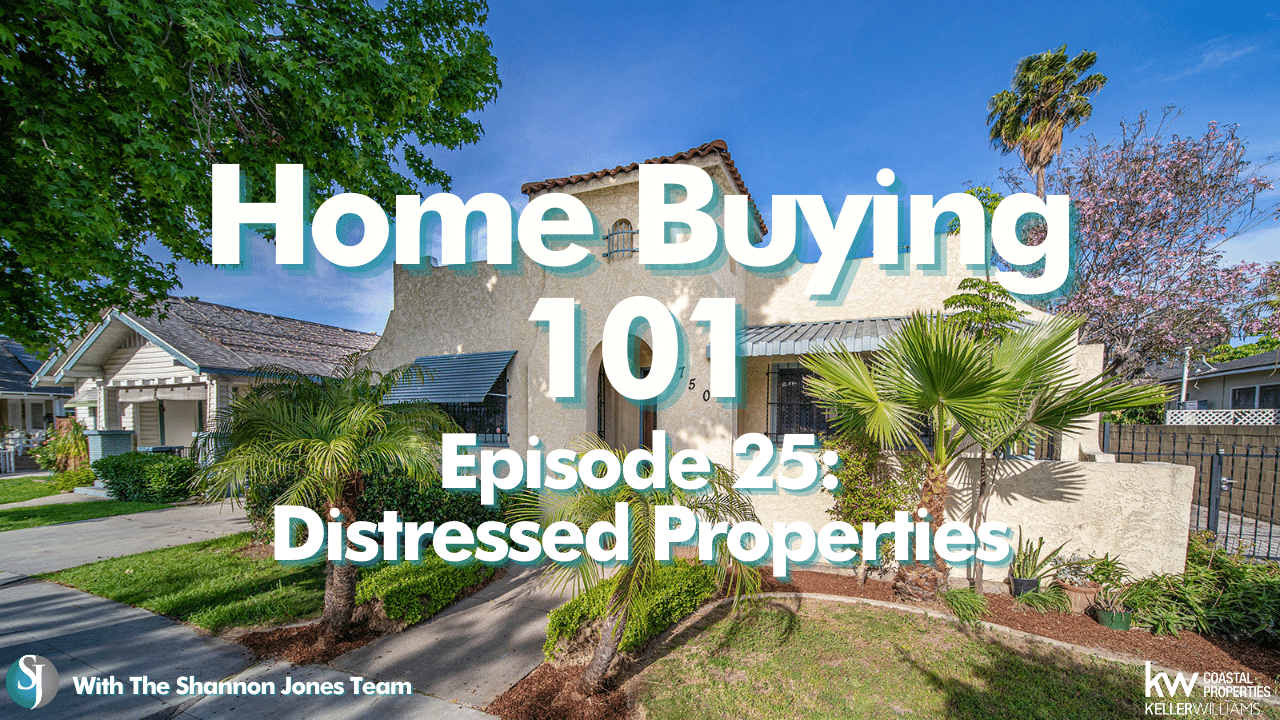A distressed home sale is simply one in which the owner is experiencing or has experienced some distress that caused the home to come onto the market. Many times, when a client asks about distressed properties, they’re really asking if they can get a deal. However, a distressed property isn’t always the best way to do this. Here’s our guide to types of distressed properties, how to find them, their risks, and why you may be better off getting a deal somewhere else.
Types of Distressed Properties
Short Sales
A short sale occurs when a homeowner is “underwater.” They want to sell their home but they don’t have enough equity to do so. Therefore, they need the bank’s permission to sell their home since the bank is going to lose money.
Foreclosures
A foreclosure is when a homeowner can no longer make their mortgage payments. They simply can’t afford their home anymore. In this case, the bank takes the home back into their possession. Typically, these banks will go into a foreclosure sale or get sold at an auction.
What’s the difference between foreclosure and forbearance? Find out here!
Real Estate Owned Properties (REOs)
REOs are a type of distressed property that the lender owns. Typically, these are homes that were unable to be sold at a foreclosure auction for whatever reason. Lenders will likely be anxious to sell these properties, so an REO is your best chance at getting a deal.
Probate Sales
A probate sale occurs when a homeowner dies or becomes incapacitated without proper estate planning. Learn more in the video below.
How to Find Distressed Properties for Sale
Unfortunately, if you’re looking for a distressed property right now, you won’t have a great selection of homes to choose from. Home equity is at an all-time high, meaning not many people are at risk of losing their homes. Even if they are, their equity will likely save them from having to go into foreclosure or going through a short sale. In order to find the distressed properties that are on the market, there are a couple of places to look.
- The MLS: The MLS, or Multiple Listings Service, lists most places that are for sale and lets you filter properties by foreclosures or short sales. However, you have to have a paid subscription in order to access them. Instead, try checking out your favorite real estate agent’s website. Most agents will have a website section that syncs directly with the MLS. You can check ours out HERE!
- Auctions: Many times, banks or lenders will list distressed properties up for auction. You can find these on websites like Auction.com.
- Ask Your Agent: Some agents specialize in distressed properties. Look for an agent with credentials like an SFR (Short Sales and Foreclosure Resource) certification or a CPDE (Certified Distressed Property Expert) certification. (Hint: Shannon is one!)
Distressed Properties Currently on the Market in Long Beach
[License Error #28.2 - The Showcase IDX license for this website is not active or doesn’t exist.]Risks When Buying Distressed Properties
There are a number of risks involved when buying a distressed property. First of all, the process of purchasing one can be long. While closing on a traditional home sale can take 6-8 weeks, closing on a distressed property can take 6 months to a year! Plus, there is always a risk of the rug being pulled out from under you because you got outbid at an auction. This can result in you spending lots of time and effort to buy a home, only to end up right where you started. Furthermore, most of these properties are sold as-is. Meaning, you have to buy the house sight unseen and could find all sorts of structural damage or cosmetic issues later on.
Purchasing A Deal
Most of the time when someone is interested in buying a distressed property, they’re interested in buying a deal. While this may work for a real estate investor, oftentimes, it’s more than the average person bargained for. Investors know the ins and outs of the market, and most of the time will never move into the properties they’ve purchased. They understand what it takes to fix up a home and have probably done it many times before. Therefore, they aren’t scared away by certain cosmetic issues or even structural issues that come with distressed properties.
However, for the average person, these properties can be an extreme source of stress. If you’re buying a distressed property to live in, you have to factor renovations into your timeline and budget. Or, you need to be okay with living in a home that’s not in great condition. There’s no right answer for the best choice to make, but these are all considerations that come with distressed properties.
If you’re interested in a “deal” there may be other options for you. You might consider a fixer-upper or moving to an up-and-coming area. If your interest in distressed properties comes from wanting to save money, reach out to us. We can talk about your budget and what your other options are.
Interested in investing in a distressed property? Read Forbes’ words of advice here!
Need More Information?
The Shannon Jones Team has been in the real estate business for over 20 years. We are well versed in all facets of the market including distressed properties, succeeding in a seller’s market, and more. Please fill out the form below to get in touch!



Leave a Reply